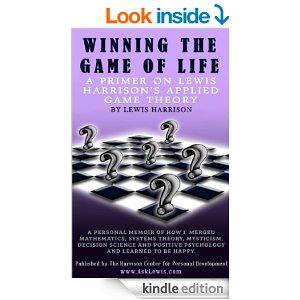Often when I speak about world affairs I am often asked the same question “How can people come to so many different conclusions when agreeing on the same facts”
Here is what I often answer.
It is often said that a skilled statistician can manipulate statistics to appear to support one conclusion rather than another. One way of reducing the potential of this happening is Bayesian inference. This is a process of deriving logical conclusions from premises known or assumed to be true. Yet it can also be used as the non-logical, but rational means, through observation of patterns of facts, to indirectly see new meanings and contexts for understanding.
Don’t let this confuse you. Many people assume that the words rational and logical are synonymous but this is not the case. Logic is a factual idea presented in a sequential form that is independent of any type of instinct, emotion, or personal feeling(s). This is not necessarily the case with something that seems to be rational. A rational idea may be true or false, and is often driven by emotions and personal feelings. The tricky thing is that an idea that an idea can be rational and at the same time illogical. The skilled individual can present such an idea in a sequential form that makes it appear as if it is logical.
Ultimately rationality is a much broader term than logic, as it includes “uncertain but sensible” arguments based on personal experience, expectation, probability, and other variables. Logic, on the other hand, is concerned with provable facts and demonstrably valid relations between them.
This distinction is important for the more intellectually developed a person is the more likely they are to make choices that they believe are guided by rational, reasonable, logical, and sensible thinking. Unfortunately, many of us believe that what is rational to us is also logical in the strictest sense of the word. This is a misnomer. What is rational may not necessarily be logical. This distinction, when ignored, can be the source of much chaos and unnecessary struggle.
I am sure in your own life that you have been are presented with situations that seem totally rational yet on closer observation seem totally illogical?
Many ideologues can articulate a position that is so rational on first hearing that it is only when one is presented with an opposing view, presented equally well and seemingly rational as well that one comes to understand the distinction between rational and logical.
I discuss this in my book on gamificartion and Game Theory:

oooooooooooooooooooooooooooooooooooooooooooooooooo
There are great thinkers who believe that any ideology, whether political or religious, is basically flawed because any ideological position is likely to be more concerned with what seems rational than what can be shown to be logically so.
It is just this issue that is the source for so many different perspectives concerning politics in the Middle East, Russia’s foray into the Ukraine, and the killing of Michael Brown in Ferguson, Missouri.
So just because we know the facts we can never assume we know the truth!
oooooooooooooooooooooooooooooooooooooo
Here is a short, entertaining video of a Cole Porter song concerning have facts but maybe not the truth.
Enjoy,
Lewis Harrison – Speaker

